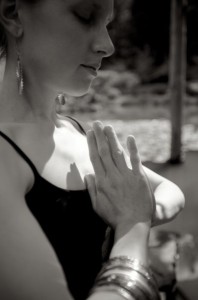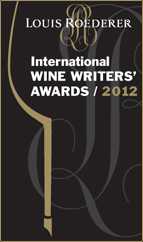Palate Press was well-represented among the winners at this year’s Louis Roederer International Wine Writers’ Awards. Columnist Erika Szymanski was awarded the Emerging Wine Writer of the Year award and columnist Evan Dawson won the International Wine Book of the Year award for his book, Summer in a Glass: The Coming of Age of Winemaking in the Finger Lakes. Incidentally, Erika and Evan are the only two US-based writers to win this year (Peter Liem is American but lives in Champagne). Evan was also a finalist for the Emerging Wine Writer of the Year award and Palate Press was a finalist for the International Wine Website of the Year award.

Evan’s book takes a detailed, personal look at the stories of winemakers who came to the Finger Lakes region of New York from around the world. Asked about the win, Evan noted, “It’s almost trite to say it’s humbling, but it truly is. There are so many excellent wine books. I’m thrilled to see that Roederer seeks out the most compelling stories without prejudice regarding where the stories originate.” Evan’s column runs in the first week of each month.
Erika has been writing for Palate Press since 2010, writing almost exclusively about the science and technology of wine. Her column runs in the fourth week of each month. Palate Press prides itself on its accurate yet approachable coverage of wine science and Erika is a key part of that coverage. Her ability to relate difficult and technical concepts in a way that readers can understand is a unique gift and one that has certainly contributed to her success. I talked to Erika a little bit about what this award meant and about wine science writing.
Why do you write about wine science?
A few reasons. Firstly, it’s fun. It’s fascinating. I love reading about wine science for its own sake but would have trouble justifying taking the time to do so if it didn’t produce some result beyond making me smile. Writing gives me an excuse to read. And, well, it seems as though there aren’t a lot of other people writing about the technical side of wine appreciation for non-technical audiences, so perhaps I’m filling a useful niche.

No and yes. No, in that someone can certainly pick up a glass and appreciate its contents without even knowing the name for this thing we call wine. Yes, in that I think that learning about wine science (and winemakers’ stories, and geography, etc) lets us perceive more of what wine offers up for appreciation. It’s pretty well-established that what we see is influenced by what we expect to see; in other words, if we don’t have a box in our heads for a particular sensory experience or idea, we’re not likely to “see” that thing. Learning about wine science creates more boxes in our heads. Those boxes let us “see” more when we approach wine. Humans seem to find great joy in putting sensory experience into boxes; I know that I do. The analogy of a symphony works well for me. Someone with no music knowledge can hear a symphony and appreciate the sound, but someone who has studied music theory and music history and such can revel in all of the little beautiful details of how the symphony fits together. More boxes.
You went to grad school for science but you’re now studying writing. How has the switch affected your writing?
Hmmm… That’s a good question. I have a master’s in microbiology and am currently studying for a second master’s in rhetoric and composition, so a big part of my life right now is trying to understand how different disciplines construct and express knowledge. I think that that struggle — to make my scientifically-trained brain work with the expectations of the humanities — gives me a new perspective on how difficult it is to plunge into someone else’s knowledge-world and come out with something useful. Perhaps it’s also given me the freedom to be a bit more playful with my writing because I have these several very different writing toolboxes at my disposal.
What do you think is the best way to convey scientific concepts to a non-scientific audience?
I suppose that there are two guiding principles to which I subscribe. First, assume that your audience is intelligent. People who conflate a lack of specific knowledge with an inability to think or a fear of polysyllabic words are tedious. Second, try to explain the reasons behind why something is the way it is. We all had to memorize the Krebs cycle in high school biology, I suspect, but how many of us ever really understood how it worked? Science is boring without the “why,” and we’re not likely to remember it without the “why,” either. Now, I’m not sure how well I succeed at following either of those principles…
Which wine (or other) writers inspire you?
Amongst wine writers, Gerald Asher, Eric Asimov, W. Blake Gray, Evan Dawson, Randall Graham, Meg Houston Maker…I hesitate to list them for fear of leaving people out. Amongst writers in general, again, too many to mention. Aldo Leopold, G.K. Chesterton, Madeline L’Engle, Ursula Le Guin… And one of my dear friends, who has a PhD in natural resource sciences but writes the most beautiful poetry and who constantly reminds me that a poetic spirit can coexist quite happily with a penchant for data analysis.
How do you think winning this award will affect your wine writing career?
Honestly, I have no idea. I suppose that, in the short run, the Roederer helps convince me that I’m probably neither crazy nor stupid, at least not from this one perspective. I don’t have a lot of self-confidence in my own writing. This helps me think that there’s some value to what I’m doing and encourages me to keep doing it. Of course, if it helps me get a full-time job in this business in the long run, I wouldn’t complain.
Any other thoughts?
I’ll mention what I asked [Publisher] David [Honig] to say if and when he accepted on my behalf in London yesterday. I asked him to thank two people for me. Firstly, David, for being encouraging above and beyond the call of duty from the very first day we met at the 2010 Wine Bloggers Conference in Walla Walla, and for nominating me for this thing in the first place. Secondly, to Tom Wark. Tom walked up to me at the 2010 WBC and said something along the lines of, “if you write the way you talk, why don’t I know who you are?” He took the time to talk to this very unimportant newbie and to encourage me to exploit my bizarreness for what it’s worth. Sincerely, that was one of the few pieces of advice I’ve ever received that has changed the way I write.
The full list of Roederer Award winners is as follows:
The Artistry of Wine Award: Colin Hampden-White
Emerging Wine Writer of the Year: Erika Szymanski – palatepress.com
International Online Wine Columnist/Blogger of the Year: Andrew Jefford – decanter.com
International Wine Website of the Year: Peter Liem – champagneguide.net
International Wine Publication of the Year: The World of Fine Wine
Regional Wine Writer of the Year: Tom Bruce-Gardyne – articles from The Glasgow Herald
International Wine Book of the Year: Evan Dawson – Summer in a Glass
International Wine Columnist of the Year: Michael Fridjhon – columns from Business Day (South Africa)
International Wine Feature Writer of the Year: John Stimpfig – The Financial Times “How to Spend It”
[author] [author_image timthumb=’on’]http://palatepress.com/wp-content/uploads/2009/11/Mansell-e1262881896388.jpg[/author_image] [author_info]Tom Mansell is the Science Editor here at Palate Press and a member of the Editorial Board. He has a PhD in chemical engineering from Cornell University, where he also learned to love the wines of the Finger Lakes. He is also the Science Editor for The New York Cork Report. Tom is currently living in Boulder, CO, where he is a researcher at the University of Colorado. Follow him on Twitter @mrmansell.[/author_info] [/author]

